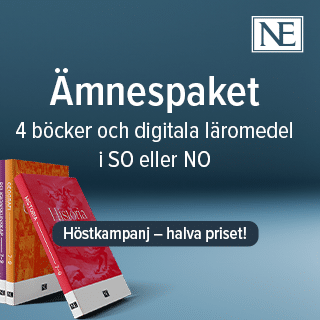Tala fram texten: När barn med läs- och skrivsvårigheter skriver med tal-till-text
Hur hanterar mellanstadieelever i svenska skolor skrivprocessen när de blir introducerade för att skriva med tal-till-text i jämförelse med tangentbord? Det är en av frågorna som Sanna Kraft utforskar i sin avhandling.
Sanna Kraft
Professor Åsa Wengelin, Göteborgs universitet. Karin Helgesson, Göteborgs universitet
Professor Gustaf Skar, Norges teknisk-naturvitenskapelige universitet
Göteborgs universitet
2023-06-16
Tala fram texten. När barn med läs- och skrivsvårigheter skriver med tal-till-text
Speaking the text. When children with reading and writing difficulties compose with speech-to-text
Institutionen för svenska, flerspråkighet och språkteknologi
Speaking the text. When children with reading and writing difficulties compose with speech-to-text
Effective writing is a crucial skill that requires not only the mastery of various sub-processes but also deliberate orchestration of those sub-processes within the constraints of limited workingmemory capacity. In practice, some of those sub-processes, such as transcription (spelling and handwriting), need to be automatised to free up capacity for other processes. Unfortunately, children who struggle with spelling rarely manage to fully automatise transcription. This often has a negative impact both on their writing process and on the final text. One solution to this problem could be to let them use speech-to-text (STT), because this would allow them to avoid spelling by using their voice to create text. This thesis consists of four articles where I investigate whether, and if so how, composing by means of STT can facilitate writing for children (aged 10–13) with reading and writing difficulties. I analyse both the composition processes and the final texts. I make comparisons both with text production by means of a keyboard and with a reference group of children without difficulties. In addition, I explore whether and how successful use of STT correlates with individual linguistic and cognitive skills. Overall, my results suggest that STT can indeed facilitate some aspects of writing for children with reading and writing difficulties, though not emphatically. In my studies, the use of STT does not yield any improvements at group level in processes such as meaning-related revisions or in assessed text quality. However, one important caveat is that the participants received only a very short introduction to STT. In general, the ability to use a new tool effectively is of course likely to improve with instruction and practice. Importantly, my results do suggest that instruction in STT use in conjunction with writing processes such as revising is crucial for successful usage of this tool.
Relaterade länkar

Fritidshem
 Åk F–6
Åk F–6 Matematikångest
 Åk 4–Vux
Åk 4–Vux 






